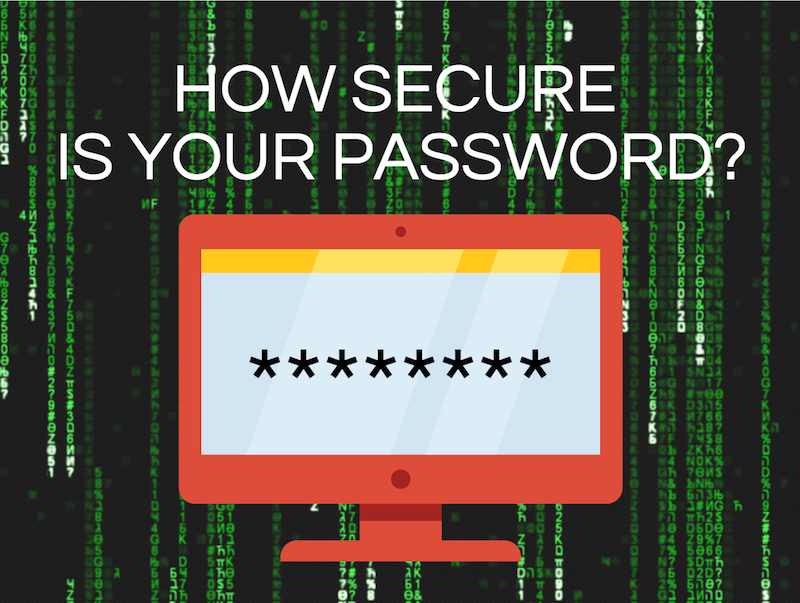How Secure Is My Password: In today’s world, we use passwords for almost everything online—email, games, social media, and even online shopping. But have you ever wondered, “How secure is my password?” This is an essential question because having a weak password can let hackers break into your accounts. Let’s learn what makes a password secure and how to create one that’s tough to crack!
What Is a Password?
A password is a secret code that keeps your online accounts safe. Think of it like the key to a locked door. If someone has your password, they can open that “door” and get into your account. That’s why making a strong password is super important.
Why Do Passwords Need to Be Secure?
When you create an account on a website, your password protects personal information like:
- Your name
- Email address
- Birthdate
- Bank or credit card details (for shopping websites)
Hackers are people who try to guess or steal passwords to access your accounts. If they succeed, they could pretend to be you, steal your money, or even cause serious problems in your online life.
What Makes a Password Secure?
Creating a secure password isn’t hard if you follow a few simple rules:
1. Make It Long
The longer your password, the better. A password should be at least 12 characters long. Longer passwords are more complicated for hackers to guess.
- Use a Mix of Characters
Include:
- Uppercase letters: A, B, C…
- Lowercase letters: a, b, c…
- Numbers: 1, 2, 3…
- Symbols: !, @, #, $, %, &
For example, instead of “password123,” try “P@ssw0rd!2#3” or something even longer.
- Avoid Common Words and Patterns
Hackers often use lists of common words and number combinations to guess passwords. Avoid:
- Common words like “password” or “let me in.”
- Easy patterns like “123456” or “abide.”
- Personal information like your name or birthday
- Use Unique Passwords
Every account should have its password. If you use the same password everywhere, one hacked account could lead to all your accounts being taken over!
- Consider Using a Password Manager
A password manager is an app that creates and remembers strong passwords for you. This can be a lifesaver if you have many accounts.
How Do Hackers Guess Passwords?
Hackers use several tricks to guess passwords, including:
- Brute Force Attack
This means trying every possible password combination until they get the right one. Longer passwords take much longer to guess this way.
- Dictionary Attack
Hackers try a list of common words and phrases, like “password,” “qwerty,” and “I love you.”
- Phishing
Hackers might send fake emails or messages to trick you into giving them your password. Be careful where you type your password online!
How to Check If Your Password Is Strong
You can check how secure your password is using tools like:
- Have I Been Pwned? – A website that shows if your password has been in a data breach.
- Password Strength Checkers – Many browsers and apps have built-in tools to check how strong your password is.
What Happens If a Password Gets Hacked?
If someone hacks your password, they might:
- Log into your account and change your settings.
- Use your account to send spam or scam messages.
- Steal money from your bank or credit card.
Extra Security Tips
- Enable Two-Factor Authentication (2FA): This adds a second step to log in, like getting a code sent to your phone.
- Change Passwords Often: Change important passwords every few months.
- Be Careful Where You Click: Don’t click on links in suspicious emails or messages.
Examples of Strong Passwords
Let’s compare weak and strong passwords:
| Weak Password | Why It’s Weak | Stronger Version | Why It’s Strong |
|---|---|---|---|
| password123 | Common and predictable | P@ssw0rd!2#3 | Long and complex |
| ilovemydog | Easy to guess | I$L0v3MyD0g#2023! | Mix of letters, symbols, and numbers |
| john2005 | Contains personal info | J0hN_#B3$t_Fr!3nd_20! | Unique and long |
Conclusion
Passwords are like keys that protect your online world. If your password is weak, hackers can break into your accounts and cause trouble. A strong password should be extended with a mix of uppercase letters, lowercase letters, numbers, and symbols. Avoid using common words, personal details, or easy patterns like “123456.”
Remember to create different passwords for every account and consider using a password manager to keep track of them. Adding two-factor authentication (2FA) gives extra protection.
By following these tips, you can keep your online accounts safe and avoid being hacked. Think of your password as your secret superhero code—make it robust and hard to guess! Stay safe, and keep learning about online security!
